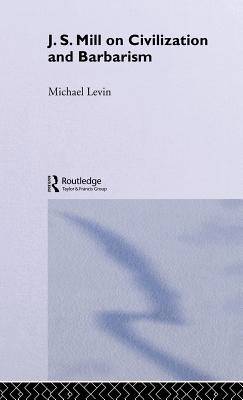
- Afhalen na 1 uur in een winkel met voorraad
- Gratis thuislevering in België vanaf € 30
- Ruim aanbod met 7 miljoen producten
- Afhalen na 1 uur in een winkel met voorraad
- Gratis thuislevering in België vanaf € 30
- Ruim aanbod met 7 miljoen producten
Zoeken
Omschrijving
John Stuart Mill's best-known work is On Liberty (1859). In it he declared that Western society was in danger of coming to a standstill. To understand how Mill came to this conclusion requires one to investigate his notion of the stages from barbarism to civilisation, and also his belief in imperialism as part of the civilising process. This study encompasses discourses on the blessings, curses and dangers of modernisation from approximately the time of the American and French revolutions to that of the so-called mid-Victorian calm in which On Liberty was written. Current political issues concerning the West and Islamic countries have heightened interest in just the kind of question that this book discusses: that of how the West relates to, and assesses, the rest of the world.
Specificaties
Betrokkenen
- Auteur(s):
- Uitgeverij:
Inhoud
- Aantal bladzijden:
- 164
- Taal:
- Engels
Eigenschappen
- Productcode (EAN):
- 9780714655901
- Verschijningsdatum:
- 10/06/2004
- Uitvoering:
- Hardcover
- Formaat:
- Genaaid
- Afmetingen:
- 153 mm x 216 mm
- Gewicht:
- 340 g

Alleen bij Standaard Boekhandel
+ 391 punten op je klantenkaart van Standaard Boekhandel
Beoordelingen
We publiceren alleen reviews die voldoen aan de voorwaarden voor reviews. Bekijk onze voorwaarden voor reviews.











